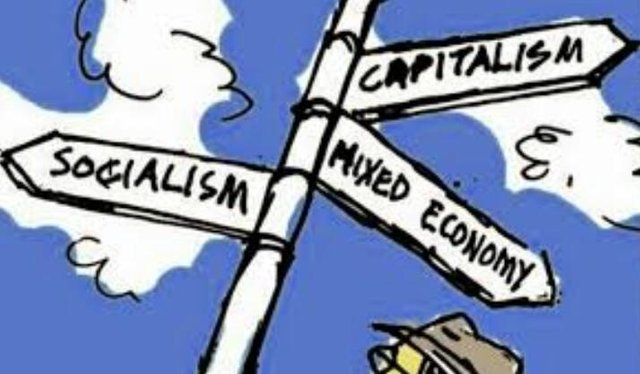The History of Capitalism

At the beginning of the fourteenth century there had been the beginnings of production
capitalist in Italy, and in England in the fifteenth century, but the range
the capitalist production is still very limited. Cities are overrun by
strong and highly restrictive trade union organizations
the number of apprentices and graduates of the trade may be employed by
the employer, in addition, the unions separated themselves from
commercial capital, that is, the only form of free capital, which has
contract with them. In addition, there is no possibility for
development of capitalism, as long as the majority of the working population
consisting of the free peasantry. The accumulation process (hoarding)
first of all the early formation of the capitalist mode of production
involves the takeover of the means of production from the hands of peasants.
This process occurs in different periods, with various
way in different countries and focus his attention on this on
England where the process was seen in the classical form. In England,
the transformation of an independent peasant into a wage-earning worker started really early in the fifteenth century. That's when the war between
feudal groups lead to decreased sources of wealth
nobility.
The first period of workers was thrown into the market with
the dissolution of servants by the fallen nobles
poor, and the degeneration of the feudal nobility position accelerated by
the rising power of monarchy. The nobility who has
the land is getting attracted to an exchange economy. The result is
closed movements are driven steadily by the increasing production of wool in
Vlaanderen, which resulted in an increase in the price of wool in England very striking. As an attitude against the king and Parliament, gentlemen
the feudal lands of the peasants on their land, forcibly evicting them
of their respective lands. The land that is handled is made into a meadow
for livestock, which requires only a few shepherds. Whole
the acquisition process belonged to in the sixteenth century was acquired
a new and frightening insistence from renewal; vast lands
belongs to the church distributed to the nobility or the cheap sell
to speculators who drive away the cultivators of land that have come down from generation to generation, and they consolidate their new wealth with
how to make large land units. The soil tillers
his property has been taken over into a mass of beggars, vagrants,
partly because it is gifted in that direction, and in many ways
is due to the inner pressure by the circumstances. This symptom is getting worse by
the existence of hard legislation that threatens homeless, this
means that homeless people are burdened with the necessary discipline for the system
wages.
Later in the early sixteenth century, in England
the beginnings of workers' labor, a layer of peasantry
lost his cultivated land, which is a group that
separated from its means of production and thrown into the market as laborers
free wages. Political economists interpret this phenomenon in
a purely positive spotlight, that says about being liberated
people of feudal ties and restrictions, and completely ignored
the fact, that this freedom brings with it the most offense
embarrassing of the most specific election rights and acts of violence
the worst of people.
In the events themselves, these events are not
can be regarded as sufficient conditions for its emergence
capitalism. At the turn of the sixteenth century, the remnants of feudalism were
being destroyed is being picked between continuous destruction and a
movement for a more advanced form of production: capitalism.

Hello! I find your post valuable for the art community! Thanks for the great post! ARTzone is now following you! ALWAYs follow @artzone and the artzone tag, and support our artists!